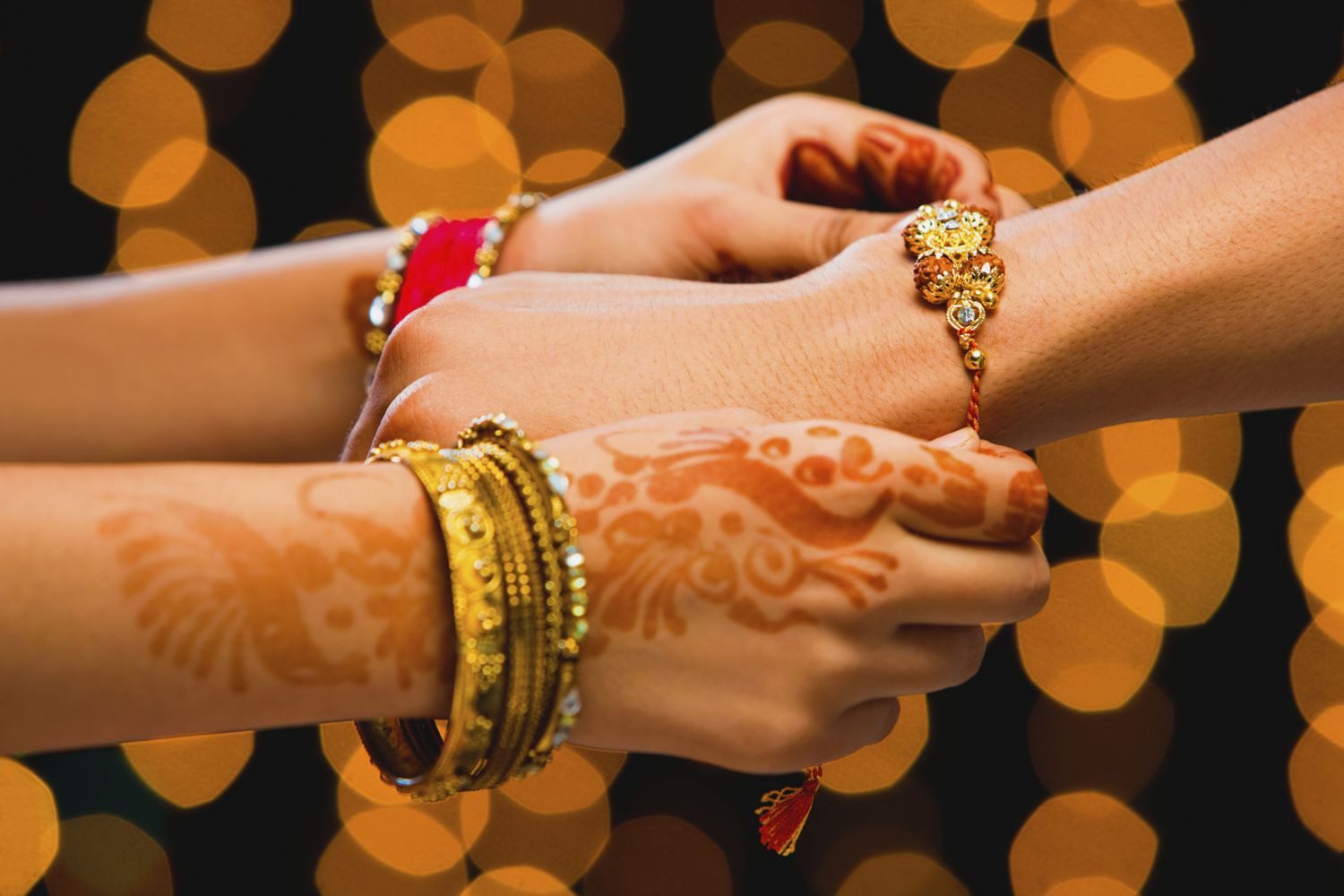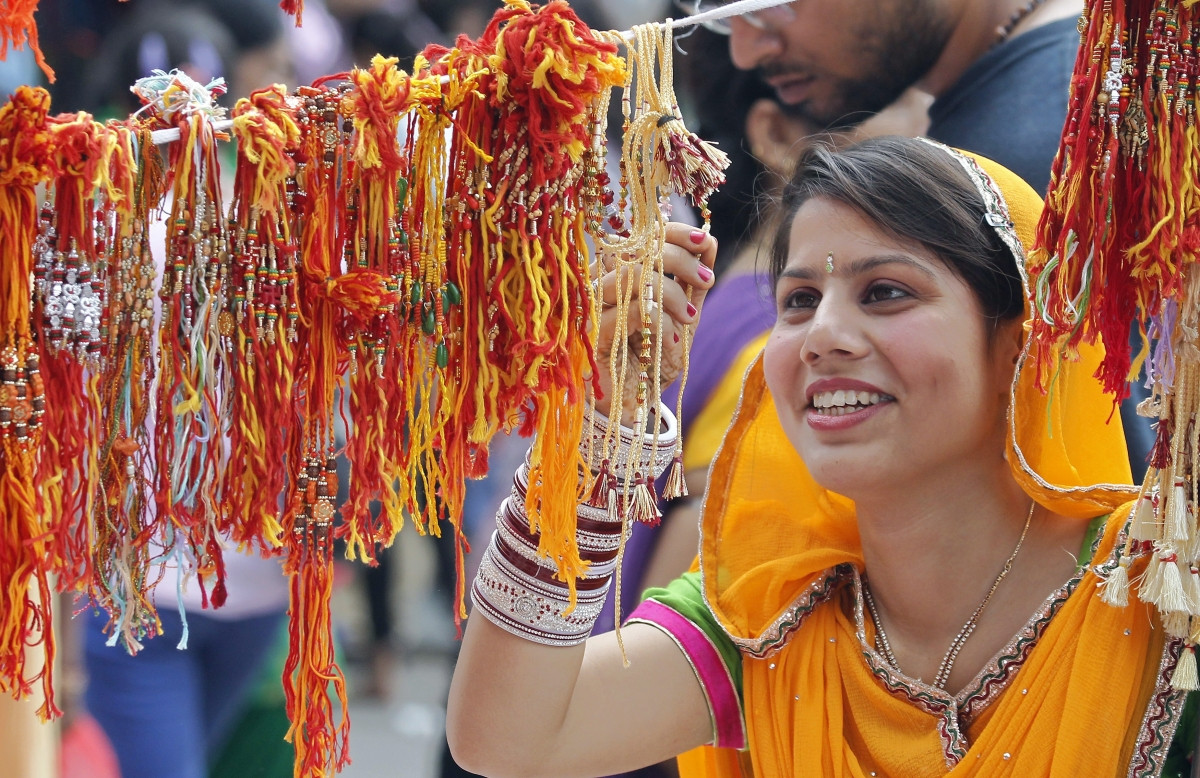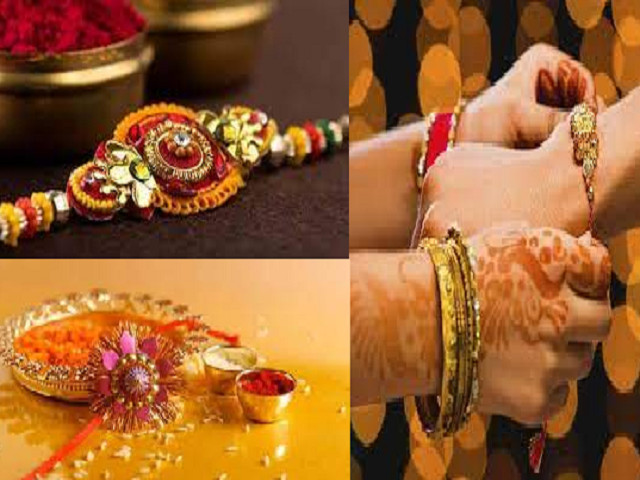The Essence of Raksha Bandhan
Raksha Bandhan, a cherished festival celebrated across India and parts of the world, signifies the unbreakable bond between brothers and sisters. This auspicious day is a testament to the love, protection, and affection shared between siblings, transcending time and generations.
On this day, sisters tie a sacred thread called a Rakhi around their brothers' wrists, symbolizing their love and seeking their protection. In return, brothers pledge to safeguard their sisters from any harm, ensuring their well-being. The essence of Raksha Bandhan goes beyond mere rituals; it encapsulates the deep-rooted familial values of love, loyalty, and responsibility that bind siblings together.
Exploring the History
The origins of Raksha Bandhan can be traced back to ancient Indian scriptures, particularly the Mahabharata, where the festival is mentioned in several instances. One notable narrative recounts the story of Draupadi, the wife of the Pandava brothers, who ties a piece of her saree around Lord Krishna's wrist to seek his protection. This act is widely believed to be the genesis of Raksha Bandhan, signifying the protective bond between siblings.
Throughout history, Raksha Bandhan has witnessed various interpretations and evolved into a celebration that goes beyond just brothers and sisters. In some regions, people tie Rakhis to friends and even leaders, symbolizing a commitment to mutual respect and support. This festivity has transcended the boundaries of kinship, becoming a testament to the power of human connection and mutual care.
Unraveling the Rituals and Customs
The celebration of Raksha Bandhan is marked by unique rituals and customs that vary from region to region, adding a rich tapestry to the festivity. The day is often marked by exchanging gifts, sweets, and heartfelt blessings, reinforcing the bonds of love and affection.
Regional Variations and Significance
The celebration of Raksha Bandhan is not confined to a single region but is observed with unique customs and traditions across India. For instance, in Rajasthan, the festival is known as "Lumba Rakhi," where sisters tie Rakhis to their brother-in-laws, signifying the importance of all family members in their lives. In Maharashtra, Raksha Bandhan coincides with "Narali Purnima," a festival celebrated by coastal communities to mark the end of the monsoon season and the beginning of the Kharif cropping season. This confluence of festivities adds a special dimension to the celebration of Raksha Bandhan in these regions.
Beyond the Rituals: Modern Interpretations of Raksha Bandhan
In today's world, Raksha Bandhan has embraced modern interpretations, keeping the spirit of the festival alive in the digital age. E-Rakhis, digital greetings, and virtual celebrations have allowed siblings separated by distance to share the joy of the festival. The spirit of Raksha Bandhan has transcended geographical boundaries, uniting families and friends across the globe. This evolving celebration reflects the resilience of tradition in adapting to the changing times while upholding its core essence of love, protection, and unity.
A Timeless Celebration: The Significance of Raksha Bandhan
Raksha Bandhan transcends mere rituals and customs; it embodies the deep-rooted values of family, love, and protection that are woven into the fabric of Indian culture. This festival is a celebration of the enduring bond between siblings, a testament to the strength and resilience of family ties. As we celebrate Raksha Bandhan, let us remember the significance of cherishing our siblings and fostering a spirit of love, support, and respect within our families. Let us keep the traditions alive, embracing the modern interpretations that enhance the celebration while upholding the core values of this beloved festival.



















